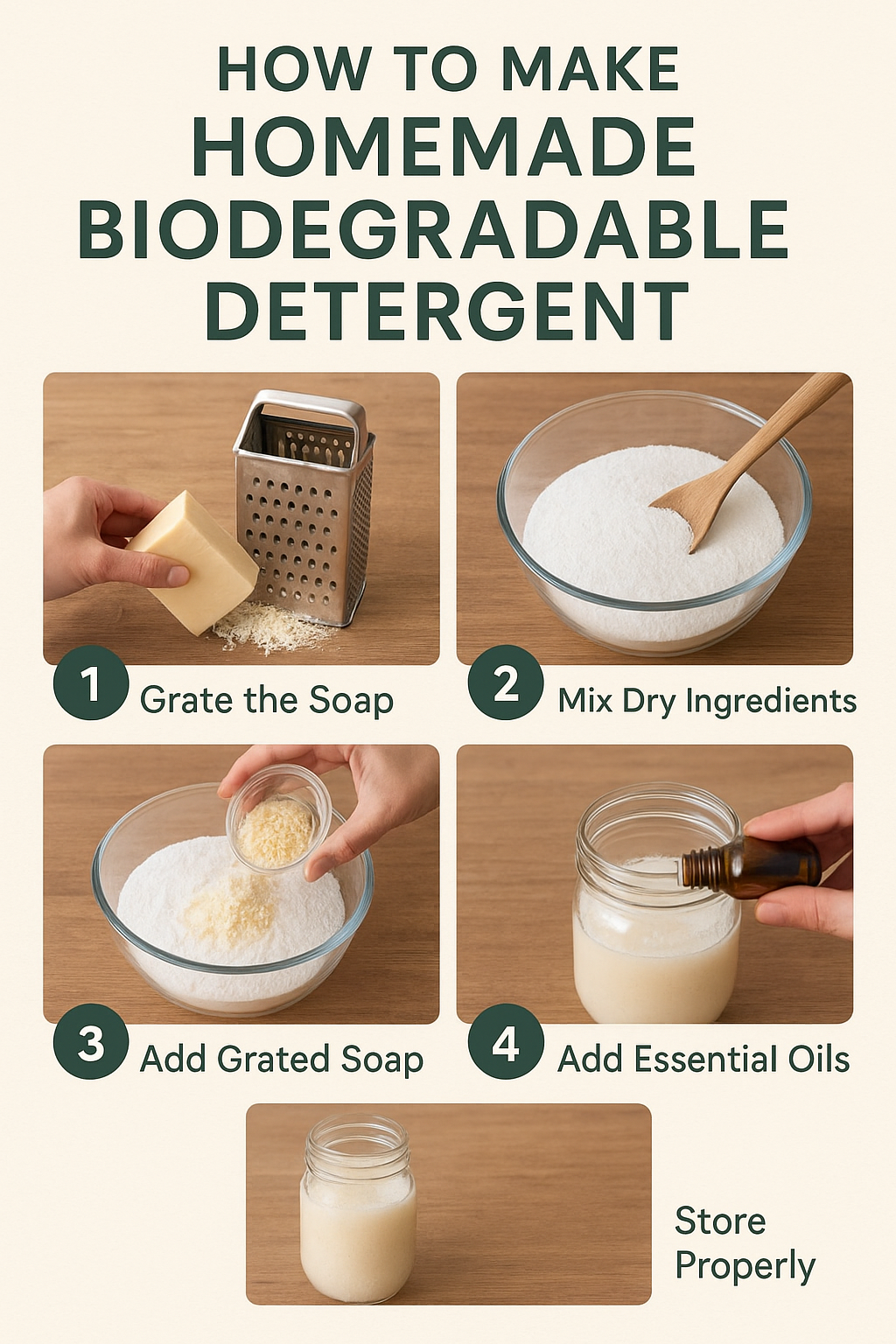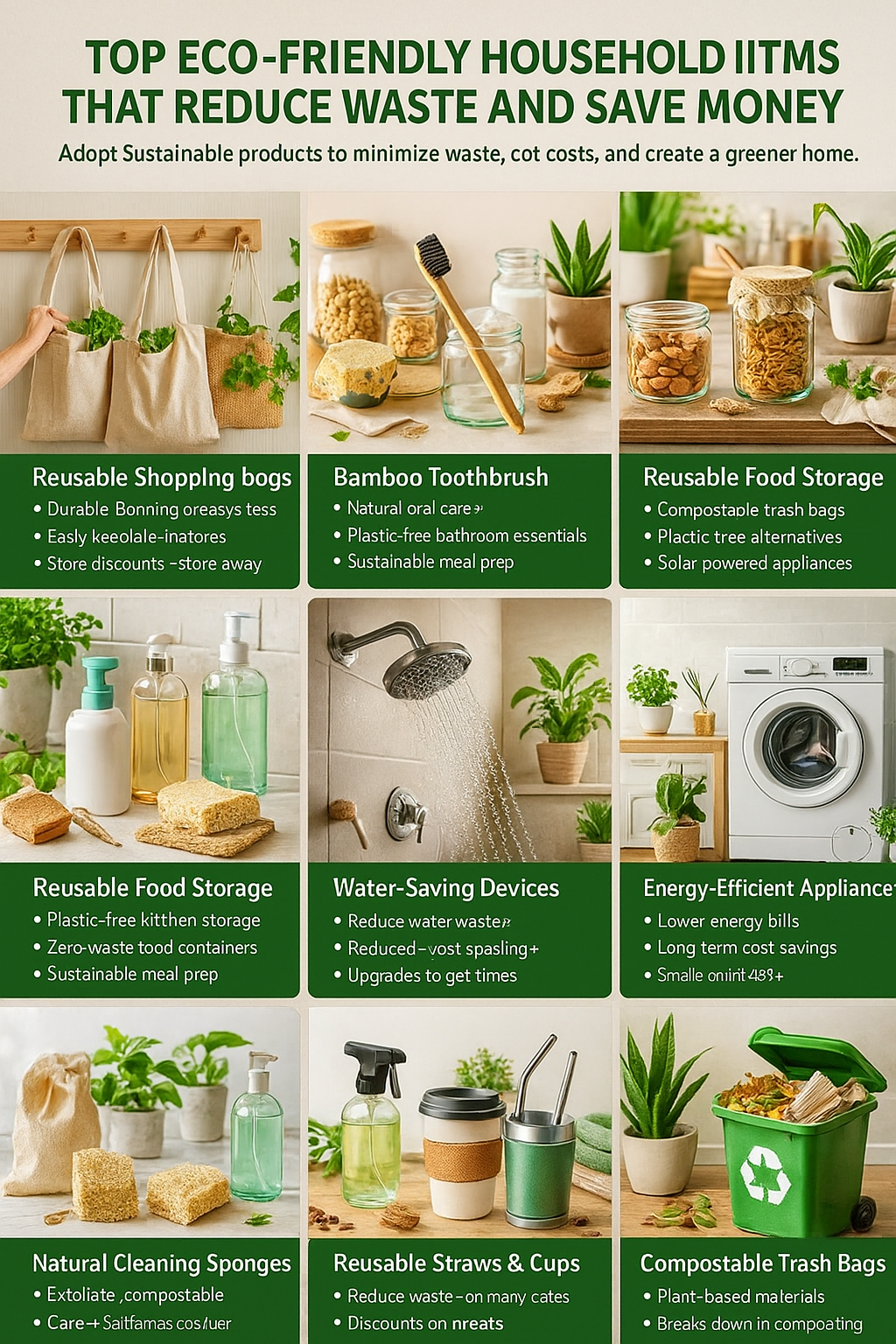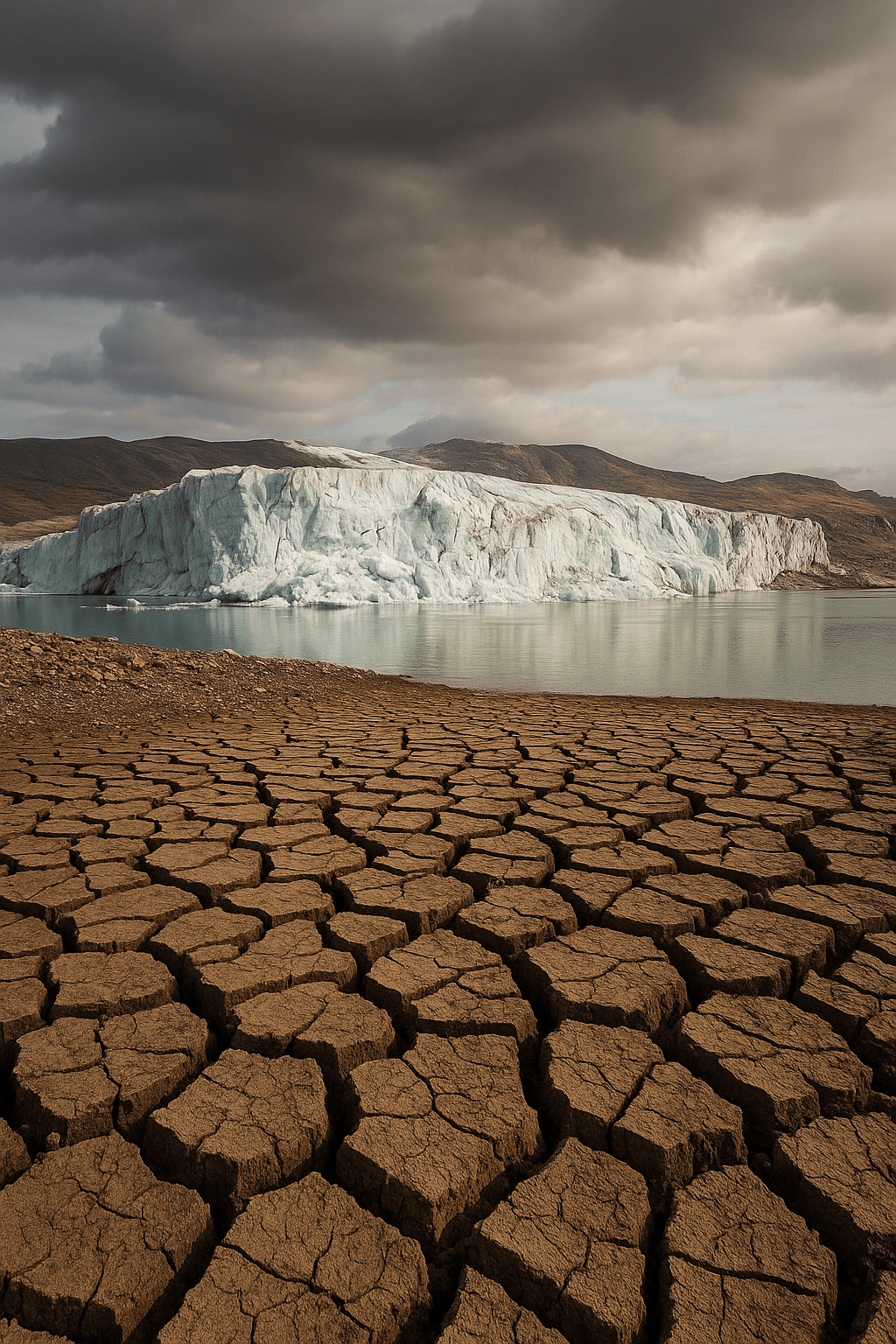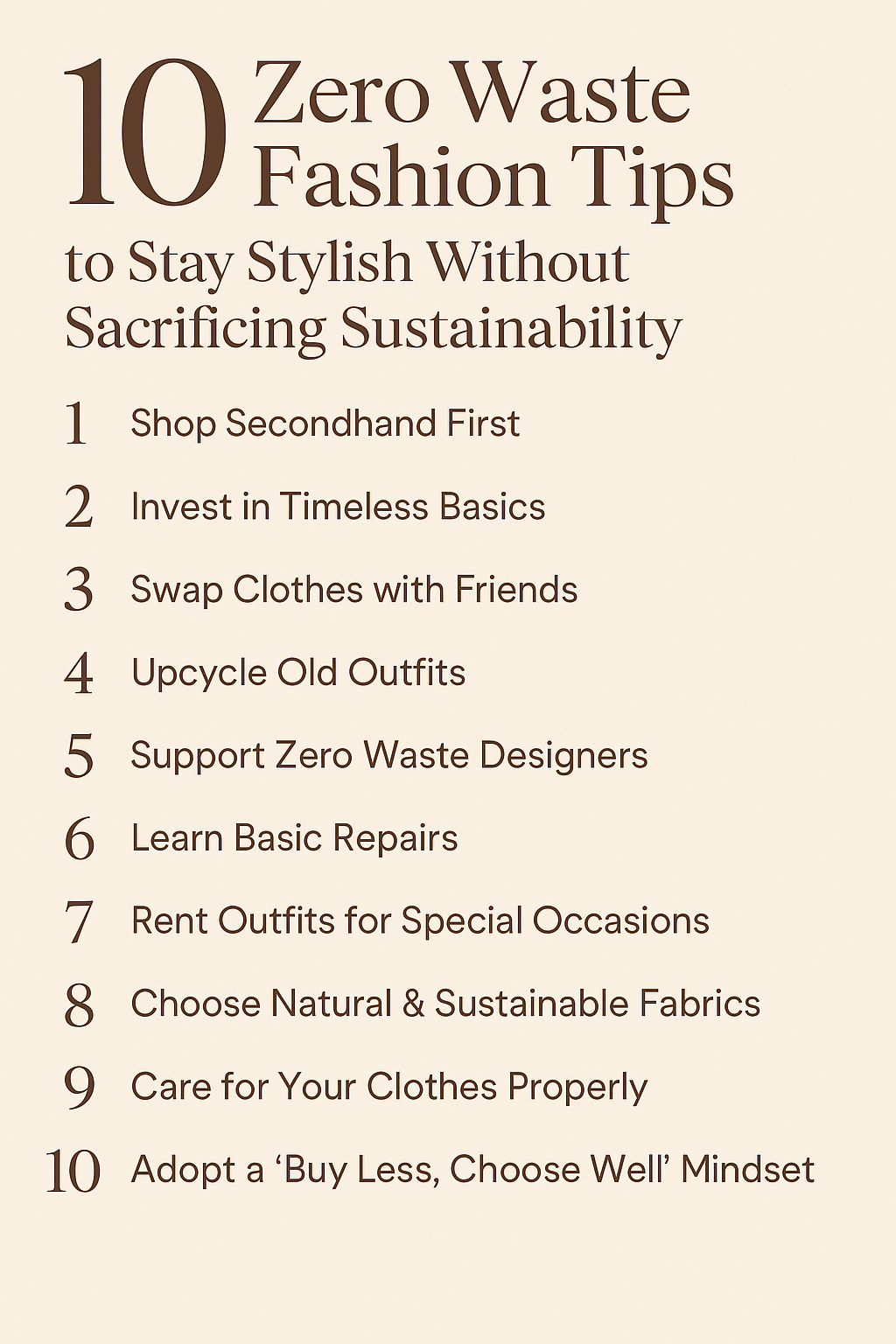Every year, millions of gallons of conventional laundry detergent wash down our drains, releasing chemicals like phosphates, synthetic fragrances, and surfactants into our waterways. According to the Environmental Protection Agency (EPA), these chemicals can disrupt aquatic life and contribute to water pollution.
The good news? You can take control by making your own homemade biodegradable detergent. Not only is it safer for the planet, but it’s also gentle on your skin, budget-friendly, and surprisingly easy to make.
What Makes a Detergent “Biodegradable”?
A detergent is considered biodegradable when it can break down naturally without leaving harmful residues in the environment. Unlike commercial cleaners full of harsh chemicals, biodegradable detergents use plant-based, non-toxic ingredients that decompose quickly and safely.
In short:
- ✅ Breaks down naturally
- ✅ Does not harm soil or water
- ✅ Safe for humans, pets, and aquatic life
Benefits of Homemade Biodegradable Detergent
Before we dive into the recipe, let’s explore why switching is worth it:
- 🌍 Environmentally Friendly – Reduces chemical pollution in rivers and oceans.
- 💰 Cost-Effective – Ingredients are inexpensive and last longer.
- 🧼 Skin-Safe – Free from artificial fragrances and irritants.
- 🏡 Customizable – You can choose your favorite natural scents (like lavender or lemon).
- ♻️ Sustainable Living – Supports a zero-waste and eco-friendly lifestyle.
Ingredients You’ll Need
Here’s a simple recipe using natural, biodegradable ingredients that you can find easily:
- 1 cup Washing Soda (sodium carbonate) – boosts cleaning power
- 1 cup Baking Soda (sodium bicarbonate) – neutralizes odors
- 1 bar Castile Soap (unscented or natural scented) – a plant-based soap that cleans effectively
- Optional: 10–15 drops of Essential Oils (lavender, tea tree, or lemon for fragrance and antibacterial properties)
Step-by-Step Guide to Making Homemade Biodegradable Detergent
Step 1: Grate the Soap
Take your Castile soap bar and grate it finely using a kitchen grater. The smaller the flakes, the easier they will dissolve in water.
Step 2: Mix Dry Ingredients
In a large bowl, combine:
- 1 cup washing soda
- 1 cup baking soda
Stir well to avoid clumps.
Step 3: Add Grated Soap
Gradually add the grated Castile soap to your dry mixture and mix until everything is evenly combined.
Step 4: Add Essential Oils (Optional)
For a fresh, natural scent, add 10–15 drops of your favorite essential oil. Lavender is calming, lemon is refreshing, and tea tree oil has antibacterial properties.
Step 5: Store Properly
Transfer the detergent mixture into an airtight glass jar or container. Keep it in a cool, dry place.
How to Use Your Homemade Biodegradable Detergent
- For regular loads: Use 2–3 tablespoons per wash.
- For heavily soiled clothes: Add a little extra detergent or soak clothes before washing.
- Works in both top-loading and front-loading machines.
💡 Tip: If you have hard water, add ½ cup of white vinegar during the rinse cycle as a natural fabric softener.
Safety Tips
- Always label your container clearly.
- Keep out of reach of children and pets.
- Test on delicate fabrics first.
Why This DIY Detergent Matters
By making and using your own homemade biodegradable detergent, you’re not just cleaning clothes—you’re contributing to a cleaner planet. If every household switched to eco-friendly detergents, we could significantly reduce the harmful impact of synthetic chemicals on the environment.
A simple lifestyle change can make a lasting impact. 🌱
Conclusion
Switching to a homemade biodegradable detergent is a small step toward sustainable living, but it creates ripple effects for your health, your wallet, and the planet. With just a few natural ingredients, you can enjoy clean clothes, a safe home, and a greener future.
So why not give it a try today? Your laundry and the Earth will thank you.





